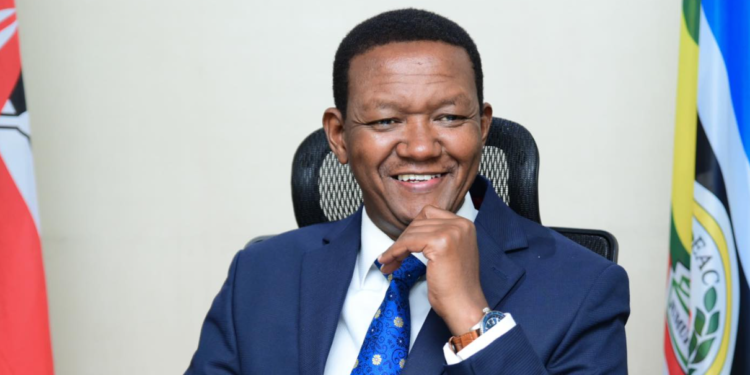Kenya’s Ministry of Labour and Social Protection will build model houses in Mombasa and Nairobi designed to train domestic workers for employment in the Gulf, Cabinet Secretary Dr. Alfred Mutua announced on Wednesday.
Dr. Mutua, speaking during a press briefing in Nairobi, said that the model houses would replicate Arabic homes to help domestic workers adapt to the living conditions in Saudi Arabia and other Gulf nations. The model houses, part of a comprehensive strategy to reform Kenya’s labour migration system, will allow workers to gain hands-on experience before deployment.
“This initiative is designed to better prepare our domestic workers for the realities of working abroad,” Dr. Mutua said. “The model houses will ensure they understand the layout and functions of Arabic homes, which can be quite different from what they are accustomed to here in Kenya.”
The model houses are part of a larger government effort to overhaul the recruitment and deployment process for Kenyan workers abroad. The reforms include a new registration system for employment agencies and changes to pre-departure training programs aimed at streamlining the process and improving the quality of labour migration.
As of September 23, new employment agencies in Kenya will face stricter registration requirements. A new registration certificate will be valid for one year, priced at KES 500,000. Existing agencies will benefit from a streamlined renewal process, with two-year extensions available for KES500,000 or one-year extensions for KES 250,000. These reforms, Dr. Mutua noted, will help ensure compliance with the law and improve transparency.
The National Employment Authority (NEA), which oversees labour migration, has also bolstered its compliance section to enforce the new regulations. Dr. Mutua emphasized that the reforms came after consultations with local and international stakeholders and are part of a broader government commitment to improving labour mobility.
Changes to pre-departure training will also take effect, particularly for homecare workers, who form the bulk of Kenya’s migrant labour force in the Gulf. Homecare management training will now be integrated with pre-departure orientation, reducing the training period from 26 days to 14 days. Skilled migrant workers will undergo a shorter, two-day pre-departure training. The reforms aim to make the process more efficient while maintaining high standards.
Dr. Mutua outlined a new assessment framework for pre-departure programs, with a 100-point evaluation system focusing on practical skills, continuous assessment, and theoretical knowledge. A minimum pass mark of 60% will be required, with assessment guidelines set to be distributed to all trainers by the National Industrial Training Authority (NITA) by November 1.
Additionally, domestic workers who have previously completed contracts in the Gulf will be exempt from the revised training requirements, allowing them to return to work more quickly.
Dr. Mutua acknowledged ongoing challenges in the recruitment process, including the issue of rogue agencies. Several agencies are currently under investigation by the Directorate of Criminal Investigations (DCI), and the government is working closely with banks to offer financing to agencies, reducing the financial burden on job seekers.
The reforms are expected to facilitate the deployment of between 5,000 to 10,000 Kenyans abroad each week, aligning with the government’s ambition to expand labour mobility while safeguarding the welfare of its citizens working abroad.
“As a government, we are committed to ensuring that Kenyans seeking employment abroad are protected, prepared, and given the best opportunities to succeed,” Dr. Mutua said.


















